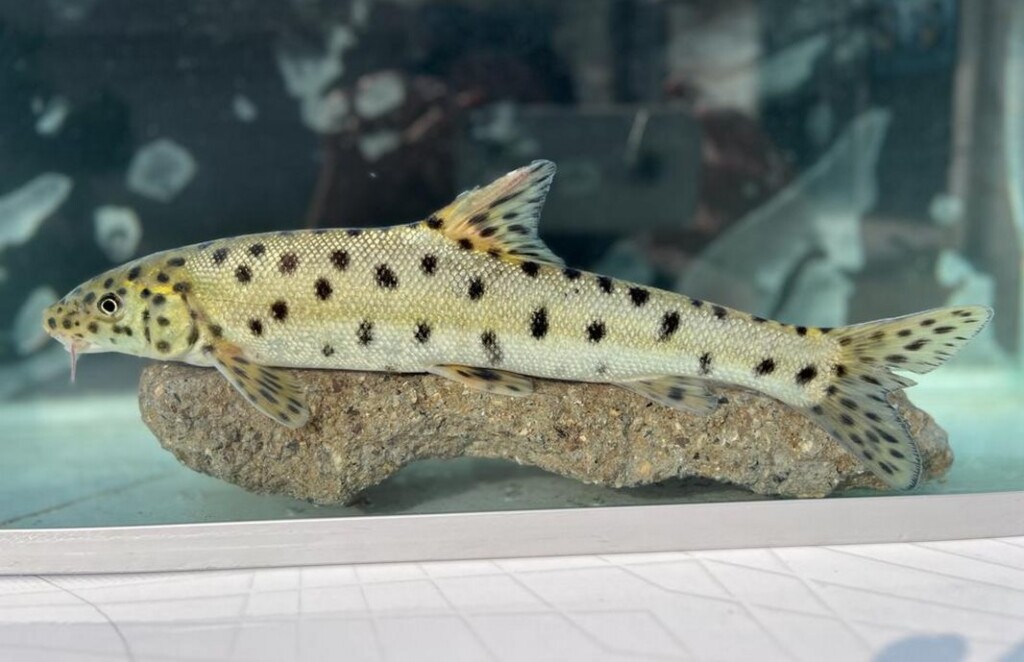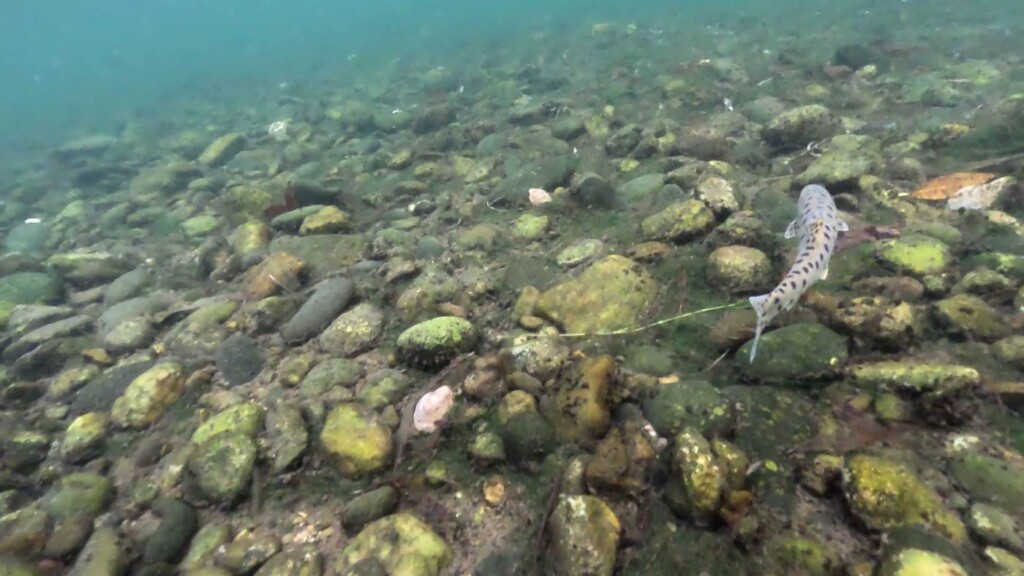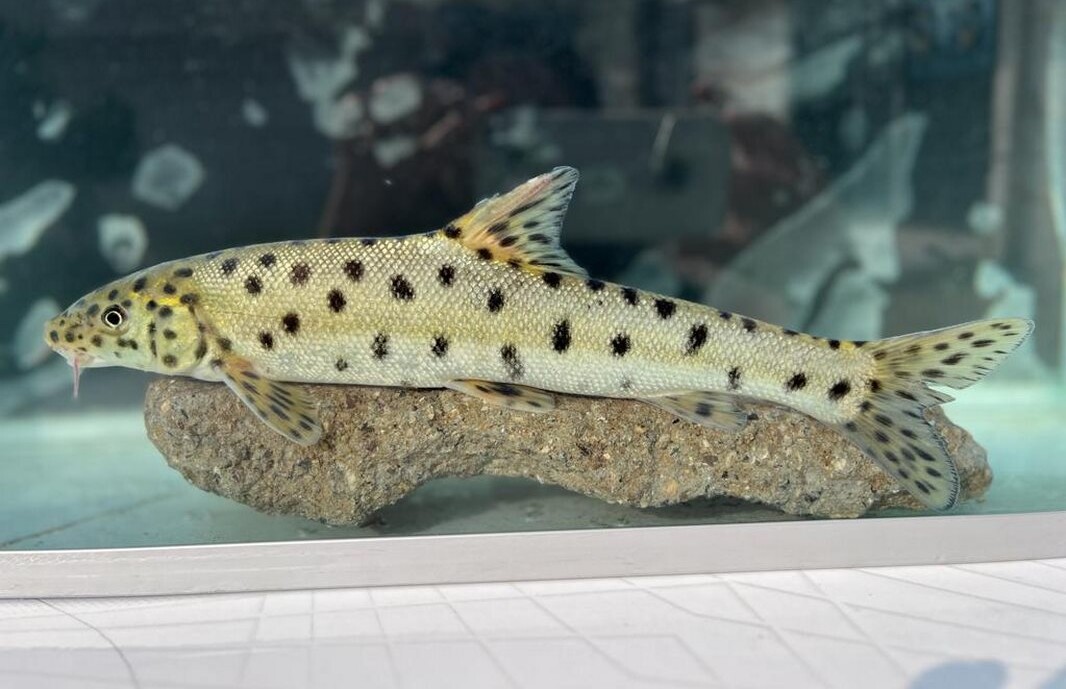
A team of ichthyologists in Türkiye (Turkey) has rediscovered a “legend” in the form of a carp-like, spotted fish called the leopard barbel (Luciobarbus subquincunciatus) in the Turkish section of the Tigris River.
The leopard barbel was once abundant, ranging from Eastern Türkiye, Eastern Syria, Iran and Iraq in the Tigris-Euphrates river system. Over the last three decades, however, fishing, pollution, habitat destruction and dam construction have pushed the species to the edge of extinction, and was last scientifically documented in 2011.
Anecdotal evidence from local fishers however suggested that the fish may have still been out there, so associate professor Cüneyt Kaya and assistant professor Münevver Oral at Recep Tayyip Erdogan University, enlisted their help to find one.
“There is nothing quite like the feeling of finding that a species that has been pushed to the brink of extinction is still hanging on, despite the odds,” said Kaya upon their success. “It is even more thrilling than discovering a new species because it means that we can give a rare species a second chance.
The team started by looking at the scientific literature about where the species had been previously found. However, those data were collected before nine dams were built in the Turkish portion of the Tigris River.
The dams alter water flow regimes, and cold water that accumulates at the bottom of reservoirs is sometimes released downstream. The release of cold water drives many freshwater fish toward warmer waters, so the team had to adjust its strategy to look further downstream from the dams.
Just days after the second of two expeditions, Kaya and Oral got a video call from local fisherman Mehmet Ülkü. He had caught a 20-inch (50 centimeter), 4.4-pound (2-kilogram) fish with conspicuous black spots and the telltale fleshy filament that dangles from the mouths of this type of freshwater fish.
Ülkü kept the fish alive in a tank with a constant oxygen supply overnight, while Kaya took a direct flight to the region and then drove nearly six hours to Cizre in the far southeastern reaches of Turkish Kurdistan, where the species was found, while Oral drove more than 11 hours through the night to see the fish and confirm its identity.
By the time they arrived, Ülkü had caught a second leopard barbel safely in his nets, and they were able to help him release the first one as well.
MORE OF RE:WILD’S WORK: Long-Beaked Creature Is Proven Not Extinct in First Ever Photos: ‘Blows My Mind’ After 60 Years

“We dropped everything and would have gone to the ends of the Earth to see this fish, this legend, alive in the wild,” Oral said. “I have never seen a fish as beautiful as this. It was the realization not only of our dream to find this lost species, but of the hope that not all is lost—we still have a chance to protect the leopard barbel and all of the other incredible freshwater species it shares its home with.”
After Kaya and Oral took photos and measured the size and shape of the two fish, they were joined by the local Cizre fisheries aquaculture department to safely release the fish, which they described as a joyous event.
“We all have a role to play in protecting our incredible natural heritage and I am proud to have used my skills to help rediscover the leopard barbel,” Ülkü the fisherman said. “Safeguarding this species into the future is going to require educating other fishers and continuing to bring together scientific knowledge and local expertise.”
ALSO CHECK OUT: ‘Like Finding a Unicorn’: Researchers Rediscover Black-Naped Pheasant-Pigeon, a Bird Lost to Science for 140 Years
Kaya and Oral are planning to conduct a series of seminars for fishers and teachers to help build pride in their riverways and wildlife, using the rediscovery as a case study to protect the Tigris River and its rich biodiversity. They are also hoping to get a better understanding of how many leopard barbel might still exist and where they are still found across their historic range.
The expedition to confirm the leopard barbel still exists was co-funded by Re:wild, the world leaders rediscovering lost species and protecting them. The fish is the second on Re:wild and SHOAL’s Most Wanted Lost Fishes list to be rediscovered. The first, the Batman River loach, was found by the same intrepid team in Southeastern Türkiye in late 2021.
SHARE This Important Conservation Work Being Done In Turkey’s Rivers…




















